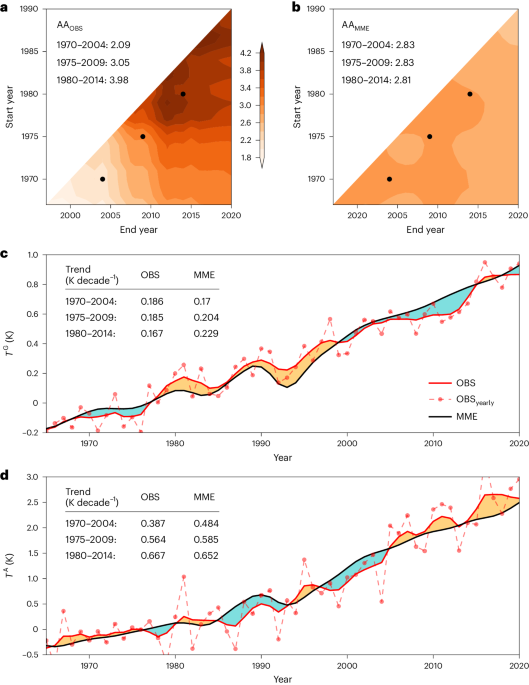Abstract
Arctic amplification—the amplified surface warming in the Arctic relative to the globe—is a robust feature of climate change. However, there is a considerable spread in the reported magnitude of Arctic amplification. Whereas earlier observations and model simulations suggested that the Arctic has been warming at a rate two to three times as the globe, a recent study reports an alarming amplification factor of four since 1979. Here we reconcile this discrepancy by revealing that natural variability has substantially modulated the degree of Arctic amplification. On the basis of three observational datasets and 34 models from the Coupled Model Intercomparison Project, we show that the observed temperature evolutions are distinct from the model-simulated forced responses and that the differences are explained by modes of natural variability. Specifically, the Interdecadal Pacific Oscillation decelerated global warming after 2000, whereas an Arctic internal mode amplified Arctic warming after 2005, both contributing positively to the recent increase of Arctic amplification to fourfold. By estimating and removing the effect of natural variability on the observed temperature changes, we reveal that the externally forced Arctic amplification has consistently remained close to three throughout the historical period.


